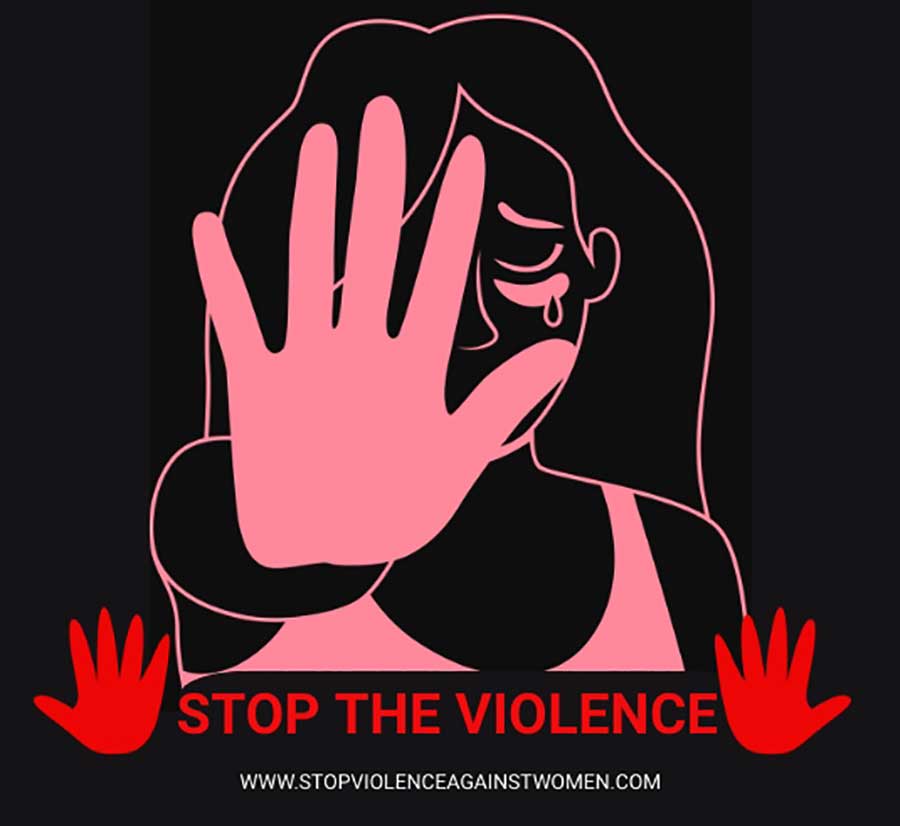- Two civilians killed, two injured in junta airstrike on Ramree village
- Bo Nagar’s defection raises security fears for resistance forces in Myanmar’s heartland
- Weekly Highlights from Arakan State (Feb 2 to 8, 2026)
- Freedom of expression curtailed in resistance-controlled areas, report finds
- Conflict leaves Arakan’s historic pagodas in ruins as restoration stalls
Vox Pop: Voices from Myanmar conflict zones on International Day for Elimination of Violence Against Women
Women, girls and activists shared their thoughts with DMG about the challenges and hardships facing women, and the actions needed to eliminate violence against them.
26 Nov 2024

DMG Newsroom
26 November 2024, Mrauk-U
November 25 marked International Day for the Elimination of Violence Against Women. While the day marked the launch of a global campaign — 16 days of activism against gender-based violence from November 25 to December 10 — women in conflict-affected areas of Myanmar continue to face various forms of violence.
Women, girls and activists shared their thoughts with DMG about the challenges and hardships facing women, and the actions needed to eliminate violence against them.
Daw Amy || Civil Disobedience Movement (CDM) lawyer
What women and girls in conflict zones are experiencing is heartbreaking. They not only face arrests but also sexual violence. It’s not just adult women; young girls are also subjected to sexual abuse.
There is no rule of law due to ongoing armed conflicts. There’s nowhere to report these crimes, and many women are too afraid to speak out. I worry about how many women are suffering in silence. Regardless of where they live, they receive no protection from any laws or organisations. This period is extremely unsafe for women. They don’t know where to turn for help. Women have also lost trust in women’s organisations because they don’t believe they can provide protection.
Since the coup, women in conflict areas have been subjected to violence. Without the rule of law, women are facing severe threats. Those with financial means can escape, but day labourers are left vulnerable. On this International Day for the Elimination of Violence Against Women, I call for a reduction in violence against women.
Ma Oo Myint Yi || Vice Chairperson || Mrauk-U Youth Organization
Women continue to face various forms of violence and abuse. Everyone knows about the junta’s abuse and sexual violence against women in Sittwe’s Byaing Phyu Village. These acts degrade our lives. Women are being used as pawns in a political game, and are being deliberately demoralised.
Traditionally, women in Arakan tend to take a back seat. Now, we don’t see women’s organisations actively standing up. This is one of the reasons oppression and violence have increased. In liberated areas of Arakan, there is a lack of movements against violence toward women. While NGOs [nongovernmental organisations] are absent, local groups are less active due to airstrikes.
If this continues, violence against women will increase, and their leadership abilities will decline. We need to protect and support women to reduce psychological, physical, and sexual violence against them.
Male activist
Violence against women is increasing in various forms. Sexual violence is sometimes linked to drug use. Women are also victims of human trafficking. These things have worsened as the whole country is engulfed in civil war. Women are subjected to rape, abduction, and deliberate killings by the junta. There may have been many unknown incidents in regions like Arakan, Sagaing, Kachin, and Kayin.
Despite facing various forms of violence, women rarely speak out. Many don’t understand the laws protecting women, and fear and shame keep them silent. Unlike the previous civilian government era, women’s organisations are now almost non-existent in Myanmar, leaving women without support.
LGBT member of a social organisation in Arakan State
Of the various forms of violence, gender-based violence is the most prevalent. When we talk about eliminating violence against women, we have yet to do a lot to raise awareness. Some don’t even recognise their actions as violence. They don’t have respect for other people’s beliefs. Women are still seen as objects of ridicule.
Things were only improving a little when the country was hit by conflicts [in the post-coup period]. But the conflicts have worsened the situation. Everyone must take responsibility to eliminate gender-based violence, regardless of gender, skin color, or differences. We need to change old mindsets.






.jpg)













